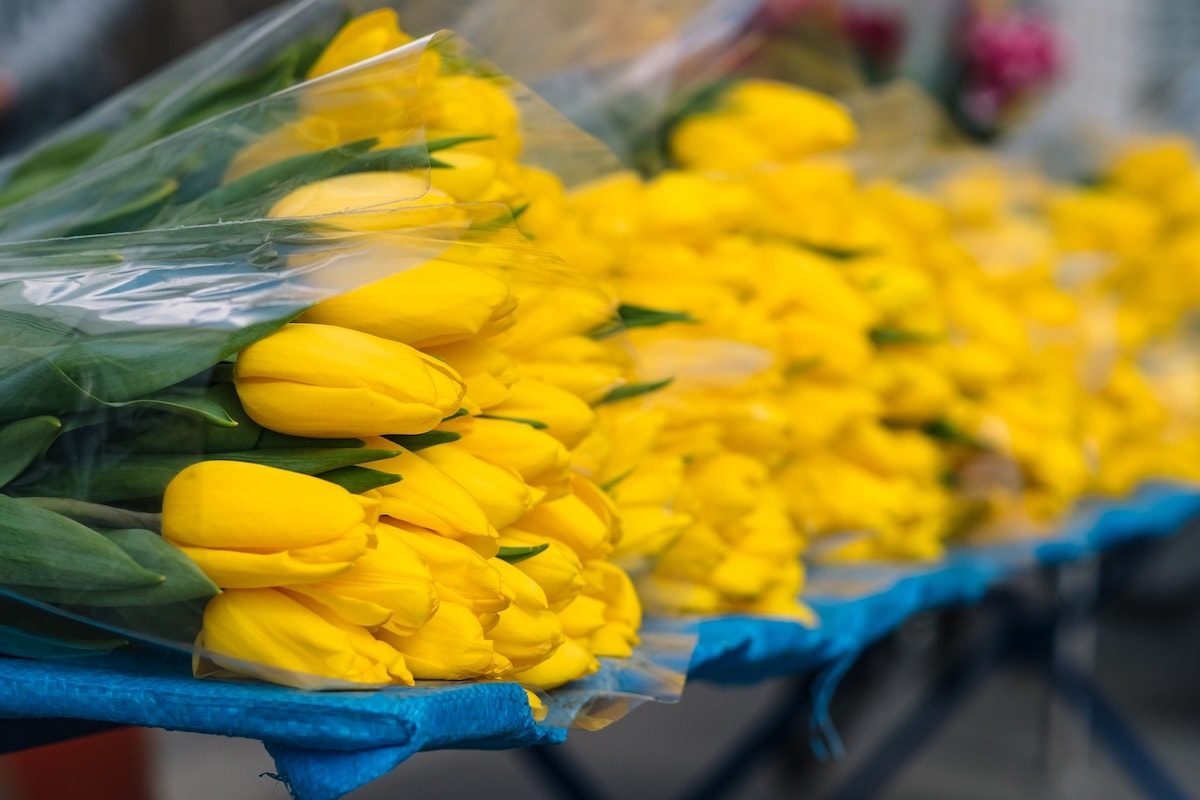The plastic pollution behind Valentine’s Day bouquets

Sustainability
Every year, Valentine’s Day sees the sale of four million bouquets of flowers across the UK, generating over 500,000 square metres of plastic waste—equivalent to seven times the size of Buckingham Palace.
New research from waste collection company BusinessWaste.co.uk highlights the environmental impact of this seasonal tradition and offers expert advice on reducing waste.
Sustainability experts at Business Waste have calculated that the plastic waste from Valentine’s Day flowers reaches half a million square metres annually. The majority of bouquets are wrapped in clear polypropylene film, which, although recyclable, is not widely accepted by local collection services. As a result, much of it ends up in landfill. Additional waste comes from flower food sachets, typically packaged in plastic, and the rubber bands used to hold bouquets together. Up to four million rubber bands are discarded every Valentine’s Day. These can take up to 50 years to biodegrade and pose a threat to wildlife, which may ingest them or become entangled. When incinerated, they can also release carcinogenic pollutants into the atmosphere.

Business Waste suggests various ways to minimise the environmental impact of Valentine’s Day flowers. Consumers and retailers can opt for bouquets wrapped in paper, compostable tissue, or other biodegradable materials. Retailers could also introduce initiatives allowing customers to return plastic bouquet sleeves for proper recycling. Eliminating plastic flower food sachets by switching to paper-based alternatives or providing homemade plant food recipes could help cut waste. Additionally, replacing rubber bands with string or ribbon would reduce the number of discarded rubber bands and encourage reuse.
Valentine’s Day contributes significantly to overall packaging waste beyond flowers. Each year in the UK, 25 million Valentine’s cards are sent, most of which are eventually discarded. An estimated 13,500 miles of wrapping paper is used for Valentine’s gifts. More than 17,000 tonnes of cardboard packaging is generated, including chocolate boxes and online delivery packaging, while nearly 7,500 tonnes of plastic packaging is produced for Valentine’s gifts. Encouraging sustainable choices can help reduce this impact. Interestingly, just over one in five Brits report not purchasing Valentine’s gifts at all, thereby avoiding additional waste.
Business Waste urges consumers and retailers alike to rethink their approach to Valentine’s Day, choosing sustainable alternatives where possible to lessen the environmental impact of this annual celebration.
Related News
-
Supplier News
Lantech systems automate packaging of plants and flowers
-
Sustainability
Unilever trials refill solutions as part of 2035 plastic pledge
-
Business
Iceland reverts to plastic trays for mince following shopper backlash
-
Business
How to rate packaging recyclability: Defra’s 2025 guidance
-
Sustainability
Banning and taxing plastics is a political gesture, not a solution, says industry leader




